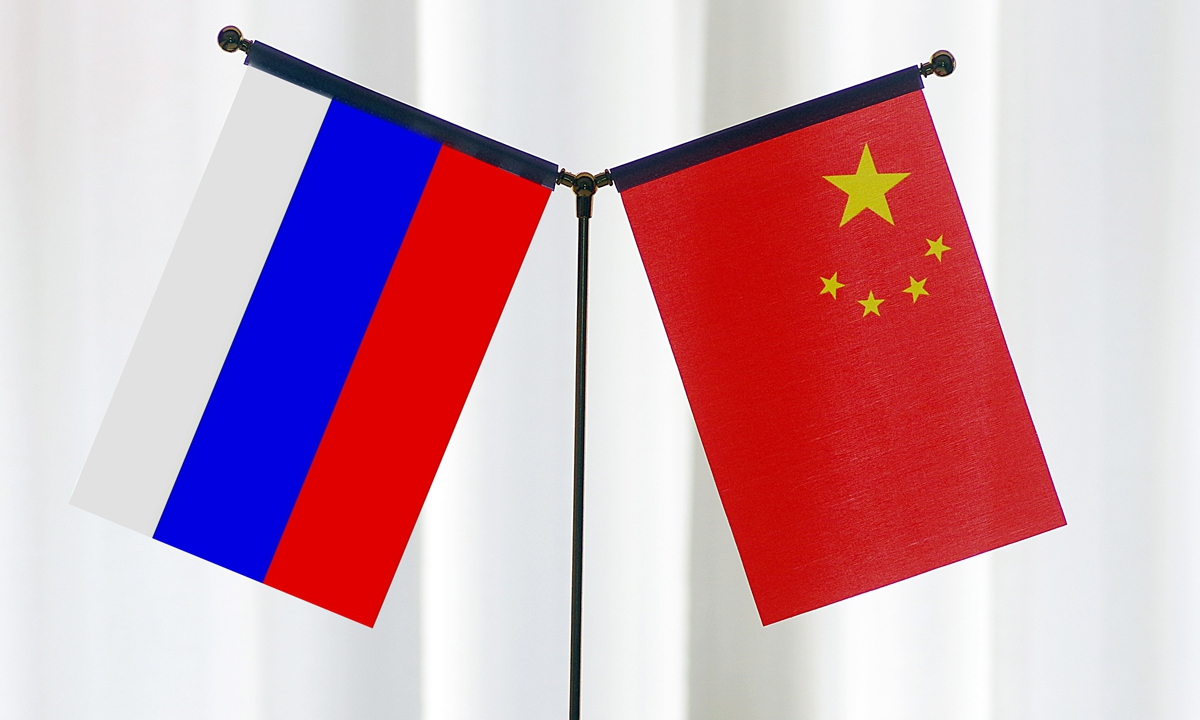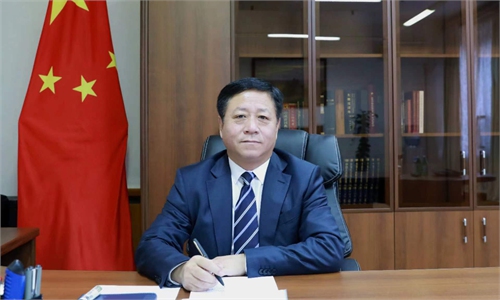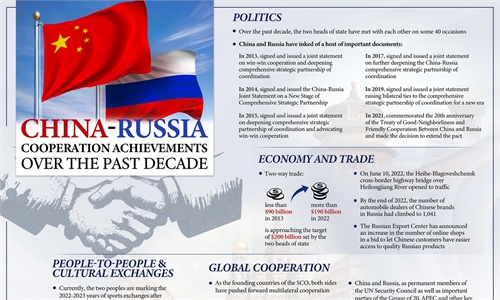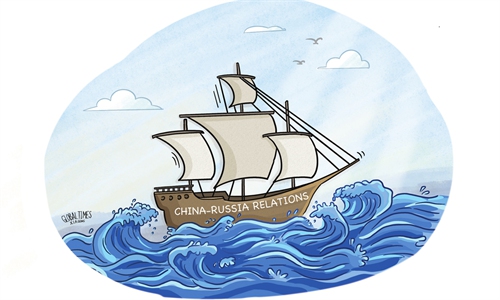GT Voice: Translate China-Russia advantage of political mutual trust into economic cooperation progress

China-Russia Photo: VCG
Chinese President Xi Jinping's ongoing state visit to Moscow, described as a trip of friendship, cooperation and peace, is expected to not only focus on bilateral diplomatic relations and international hotspot issues of shared concern, but also offers a peek into future economic and trade cooperation between the two neighboring powers.While against the backdrop of the Ukraine crisis, the West has been accusing China over its normal trade ties with Russia by distorting the nature of China-Russia trade, the resilient fundamentals of bilateral pragmatic cooperation remain intact. The development of China-Russia trade is not aimed at supporting Russia in war, but has a reasonable logic that is in line with the interests of the two countries. As long as China's foreign trade is in accordance with the global trade rules and in line with the needs of both sides, the West is in no position to point fingers at the normal economic cooperation between the two countries.
Indeed, with the enhancing political mutual trust between China and Russia in recent years, bilateral economic and trade cooperation has entered a fast track. Such momentum has been mainly manifested in the rapid growth of bilateral trade of goods as well as increasing presence of Chinese investment in Russia. Bilateral trade between China and Russia in 2022 rose 34.3 percent year-on-year to a record high of 1.28 trillion yuan ($190 billion) in yuan-denominated terms, according to Chinese customs data.
Given the current growth rate of China-Russia trade, there is no doubt that the two countries could raise bilateral trade to the benchmark of $200 billion earlier than expected. Moscow and Beijing once set the goal of achieving the $200 billion benchmark by 2024 for bilateral trade.
According to a recent interview by the Global Times with Chinese Ambassador to Russia Zhang Hanhui, in 2022, China's export of mechanical and electrical products to Russia increased by 9 percent, high-tech products increased by 51 percent, and automobiles and parts increased by 45 percent year-on-year. The "cornerstone" role of energy in bilateral trade has been further highlighted. Russia is China's main source of imports in oil, natural gas, and coal.
The rapid rise in China's exports of automobiles, mechanical and electronic products to Russia and the surge in Russia's energy and agricultural exports to China are evidence enough to indicate there is still considerable room and potential for China-Russia trade relations to deepen further, which is determined by the highly complementary trade structure of the two sides.
No matter how the international situation changes, China and Russia need to actively strengthen cooperation to further expand and enhance bilateral economic and trade cooperation so as to better translate the advantages of political mutual trust and trade complementarities into practical progress.
First, the two sides can consolidate cooperation in such key areas as energy and sci-technology sectors. Some Russian media reports predicted that China is setting a course to become Russia's top trading partner in 2023, thanks in large part to the rapid growth of trade of energy, automobiles, mechanical and electronic products.
Second, since more and more companies tend to use yuan and rubles to sign contracts, the two countries can continue to deepen bilateral financial cooperation, especially in the areas of financial services, such as promoting the local currency settlement of China-Russia commodity transactions as well as bilateral digital currency cooperation. In 2022, the proportion of energy trade between China and Russia settled in their own currencies increased by 64 percent, with rise also seen in the proportion of yuan in Russia's international reserves. Russia has already become the third-largest market for offshore yuan transactions.
Third, China and Russia may also strengthen cooperation for infrastructure projects under the Belt and Road Initiative with an aim to facilitate the connectivity for regional logistics and supply chains, such as the China-Mongolia-Russia Economic Corridor.



